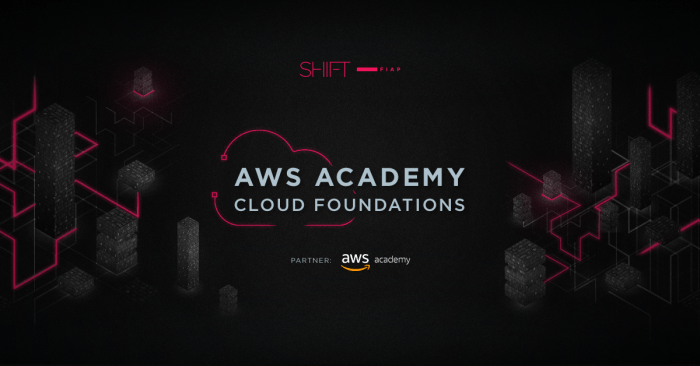Dive into the world of cloud computing with the AWS Academy Cloud Foundations Module 1 PDF, an authoritative resource that empowers you with the knowledge and skills to navigate the ever-evolving cloud landscape. This comprehensive guide provides a solid foundation for understanding cloud concepts, AWS services, and best practices for secure and efficient cloud management.
Throughout this module, you’ll explore the benefits and models of cloud computing, delve into the core services offered by AWS, and gain insights into cloud security measures and cost optimization strategies. Hands-on labs reinforce key concepts, while assessment and certification opportunities validate your understanding and prepare you for success in the cloud computing domain.
1. Course Overview
The AWS Academy Cloud Foundations module 1 provides a comprehensive introduction to cloud computing and Amazon Web Services (AWS). This module covers the fundamental concepts, services, and best practices of cloud computing, enabling learners to develop a solid foundation for their AWS journey.
The topics covered in this module include:
- Cloud computing concepts
- AWS services
- Cloud security
- Cloud management
- Hands-on labs
- Assessment and certification
2. Cloud Computing Concepts
Cloud computing is a model of delivering computing resources over the internet, enabling users to access computing power, storage, and other services without having to manage physical infrastructure. Cloud computing offers several benefits, including scalability, cost-effectiveness, and increased agility.
There are three main cloud service models:
- Infrastructure as a Service (IaaS): Provides access to virtualized computing resources, such as servers, storage, and networking.
- Platform as a Service (PaaS): Provides a platform for developing, deploying, and managing applications, without the need to manage underlying infrastructure.
- Software as a Service (SaaS): Provides access to software applications over the internet, eliminating the need for users to install and maintain the software on their own devices.
Cloud deployment models include:
- Public cloud: Services are available to the general public over the internet.
- Private cloud: Services are dedicated to a single organization and are not accessible to the public.
- Hybrid cloud: Combines elements of both public and private clouds, providing a flexible and scalable computing environment.
3. AWS Services: Aws Academy Cloud Foundations Module 1 Pdf
AWS is the world’s leading cloud platform, offering a comprehensive suite of services for computing, storage, networking, analytics, and more. Key AWS services include:
- Amazon Elastic Compute Cloud (EC2): Provides scalable computing capacity for running applications.
- Amazon Simple Storage Service (S3): Provides durable, highly available object storage.
- Amazon Virtual Private Cloud (VPC): Provides a secure and isolated network environment within AWS.
- Amazon Relational Database Service (RDS): Provides managed relational database services.
- Amazon DynamoDB: Provides a fully managed NoSQL database service.
AWS services can be used in a variety of real-world scenarios, such as:
- Building and deploying web applications
- Storing and managing data
- Creating and managing virtual networks
- Developing and deploying machine learning models
- Hosting and managing databases
4. Cloud Security

Cloud security is of paramount importance in ensuring the confidentiality, integrity, and availability of data and resources in the cloud. AWS provides a comprehensive set of security measures, including:
- Identity and access management (IAM): Controls who can access AWS resources and what actions they can perform.
- Encryption: Encrypts data at rest and in transit to protect against unauthorized access.
- Security groups: Firewalls that control network traffic to and from AWS resources.
- CloudTrail: Logs API calls made to AWS resources, providing a detailed audit trail of activity.
- AWS Security Hub: Provides a central view of security alerts and compliance status across AWS accounts.
Best practices for implementing secure cloud architectures include:
- Using strong passwords and multi-factor authentication
- Implementing role-based access control (RBAC)
- Encrypting all data
- Using security groups to control network access
- Regularly monitoring and auditing AWS resources
5. Cloud Management

Cloud management is essential for optimizing costs, ensuring performance, and maintaining compliance in the cloud. Cloud management tools and techniques include:
- AWS CloudFormation: Provides a declarative approach to provisioning and managing AWS resources.
- AWS CloudWatch: Monitors and analyzes AWS resources, providing insights into performance and usage.
- AWS Cost Explorer: Provides visibility into AWS costs and helps identify opportunities for optimization.
- AWS Trusted Advisor: Provides recommendations for improving the security, performance, and cost-effectiveness of AWS deployments.
Cost optimization strategies for cloud deployments include:
- Right-sizing resources
- Using spot instances
- Negotiating with AWS for discounts
- Optimizing billing settings
- Monitoring and managing cloud usage
6. Hands-on Labs

Hands-on labs are an essential part of the AWS Academy Cloud Foundations module 1. These labs provide learners with an opportunity to apply the concepts they have learned in a practical setting.
The labs are designed to be step-by-step and easy to follow, with troubleshooting tips and expected outcomes provided. The labs cover a variety of topics, including:
- Creating and managing EC2 instances
- Storing and retrieving data from S3
- Creating and managing VPCs
- Deploying web applications on AWS
- Managing AWS security
7. Assessment and Certification
The AWS Academy Cloud Foundations certification validates learners’ knowledge and skills in cloud computing and AWS. To be eligible for the certification, learners must have completed the AWS Academy Cloud Foundations module 1 and pass the associated certification exam.
The exam format includes:
- 60 multiple-choice questions
- 180-minute time limit
- 70% passing score
Tips for preparing for the certification exam include:
- Thoroughly reviewing the course material
- Completing all of the hands-on labs
- Taking practice exams
- Joining AWS Academy study groups
FAQ Explained
What are the benefits of cloud computing?
Cloud computing offers numerous benefits, including scalability, cost-effectiveness, flexibility, and access to cutting-edge technologies.
What are the different types of cloud deployment models?
Cloud deployment models include public cloud, private cloud, and hybrid cloud, each with its unique advantages and use cases.
How does AWS ensure cloud security?
AWS implements robust security measures, including encryption, access controls, and compliance certifications, to safeguard data and maintain the integrity of cloud environments.